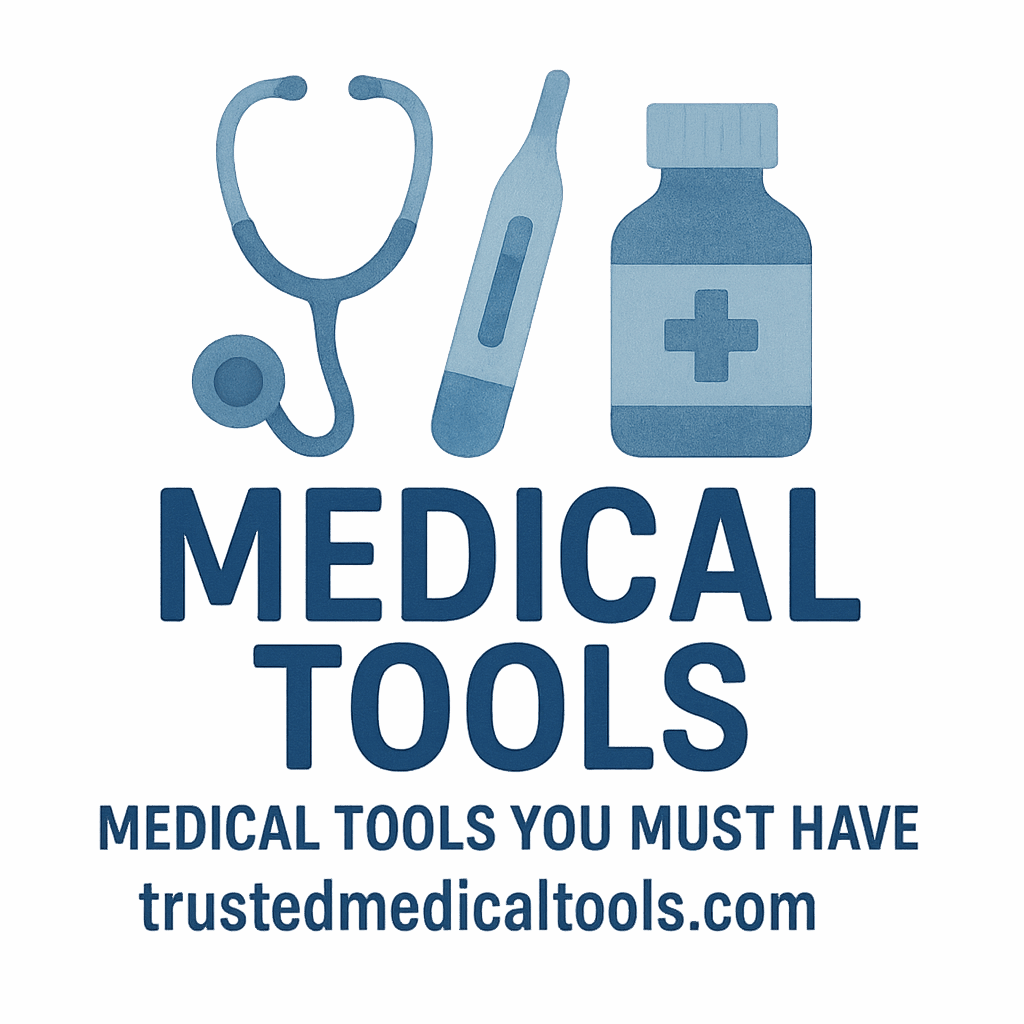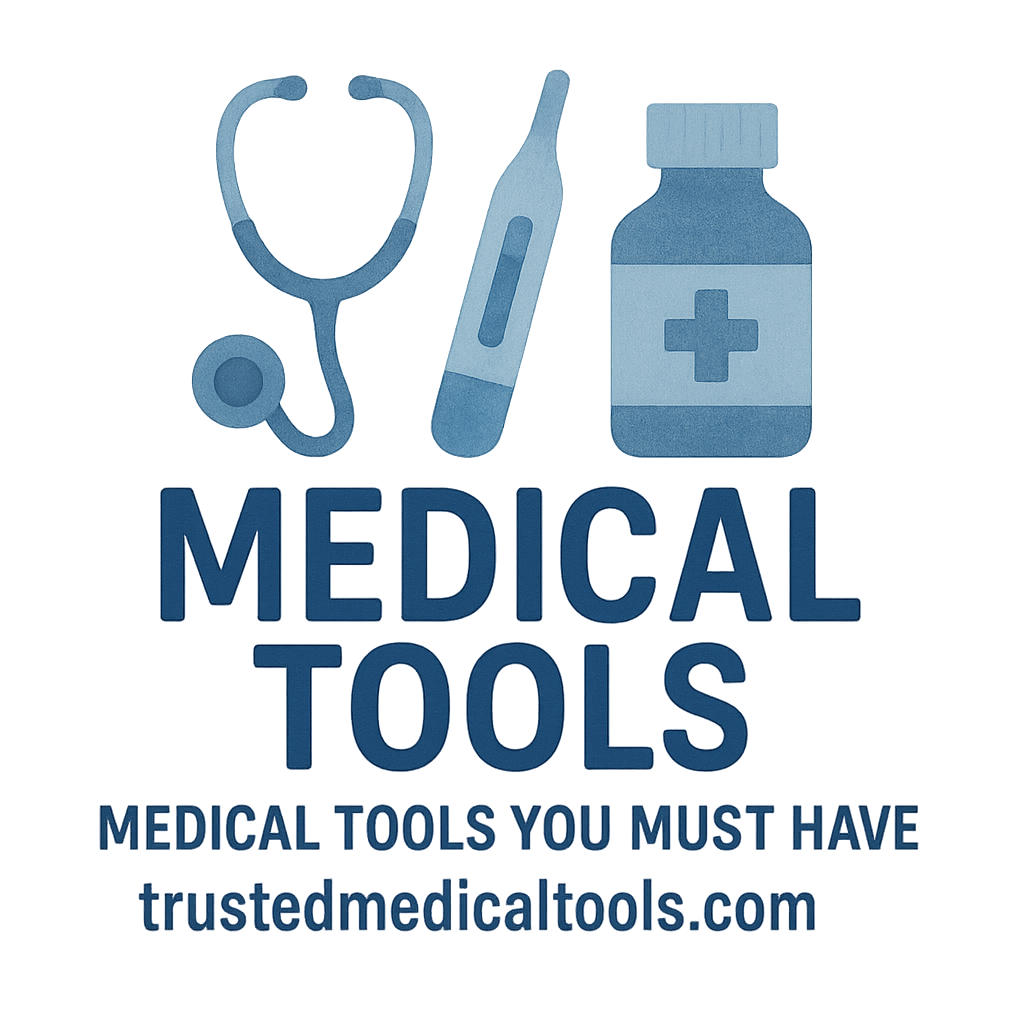When it comes to health, it’s not just about visiting a doctor when you’re sick. Prevention and early detection can save lives — and money. That’s why having the right medical tools at home is a game-changer. In this post, we’ll walk you through 7 essential medical tools worth investing in for long-term use, especially for your home setup.
Why You Should Invest in Quality Medical Tools
Long-Term Health Starts at Home
Imagine being able to check your blood pressure, oxygen levels, or even detect a fever at the drop of a hat — all without leaving your house. That’s the power of owning the right tools. Long gone are the days when medical equipment was only for hospitals.
Whether it’s for chronic conditions, emergencies, or daily wellness, having doctor-approved, easy-to-use tools at home gives you confidence and control.
Check out the full family care essentials guide for more ideas.
What Makes a Medical Tool Worth the Investment?
Durability and Reliability
Would you rather replace a thermometer every year or buy one that lasts a decade? The answer is obvious. Look for tools made from high-grade materials and backed by warranties.
Ease of Use and Accessibility
Medical tools should not require a Ph.D. to use. Features like large screens, voice commands, and automated readings make a huge difference — especially for seniors.
Explore our easy-to-use health tools.
Doctor-Approved and Trusted
Always go for tools that are clinically validated and recommended by professionals. You can find a wide selection under the doctor-approved tools section.
1. Digital Blood Pressure Monitor
Why It’s a Must-Have
High blood pressure is a silent killer. A digital blood pressure monitor lets you track readings over time and even share them with your doctor for better treatment planning.
How to Use It Properly
- Sit calmly for 5 minutes before measurement
- Wrap the cuff snugly on your upper arm
- Keep your arm at heart level
Trusted Monitoring Devices for Home Use
You can browse monitoring devices that are easy to operate and give accurate readings.
2. Infrared Thermometer
Fast and Hygienic Temperature Checks
Gone are the days of placing a thermometer under your tongue. Infrared thermometers are quick, touch-free, and super reliable.
Best Practices for Accurate Readings
- Hold it 1-2 inches from the forehead
- Ensure no sweat or obstruction
- Use in a room-temperature environment
This is a great addition to your home essentials toolkit.
3. Pulse Oximeter
Monitoring Oxygen Levels at Home
Especially relevant during flu season or for anyone with asthma or COPD, a pulse oximeter lets you track your blood oxygen level in real-time.
Especially Useful for Respiratory Conditions
Low oxygen? You’ll know right away. That means faster response in emergencies — even before symptoms worsen.
Explore more on DIY health checks.

4. First Aid Kit (Fully Stocked)
Essential for Emergencies and Daily Use
You never know when you’ll need a bandage or antiseptic. A well-stocked first aid kit can be a real lifesaver during minor injuries or burns.
Items Your First Aid Kit Should Always Include
- Sterile gauze pads
- Band-aids and antiseptic wipes
- Scissors, tweezers, gloves
- Pain relievers and burn ointment
Where to Get a Reliable First Aid Box
Check out our first aid collection or browse by first-aid box tags.
5. Glucometer (Blood Sugar Monitor)
Ideal for Diabetics and Preventative Health
Blood sugar swings can affect your energy, mood, and long-term health. A glucometer is great for diabetics, pre-diabetics, and health-conscious individuals.
Tips for Accurate Blood Sugar Readings
- Test at the same time each day
- Always use clean hands
- Keep the device calibrated
Browse our collection of home health care tools for managing chronic conditions.
6. Medical-Grade Weighing Scale
Why Tracking Weight Matters
Weight impacts your heart, joints, and blood sugar. A digital scale helps you track trends, not just numbers.
Digital vs. Analog Scales
- Digital: Precise, easy to read, often includes BMI
- Analog: No batteries, simpler but less detailed
Add this to your list of wellness tools.
7. Otoscope and Diagnostic Light
Helpful for Ear, Throat, and Eye Checks
Kids complaining about an earache? You’ll wish you had an otoscope at home. It helps you spot infections early before they worsen.
Best for Families with Kids
These are fantastic for households with children prone to ear or throat issues. And yes, adults can use them too!
Check out our full basic tools collection to complete your set.
Extra Medical Tools to Consider
Supplementary Tools for Home Health Care
- Nebulizer
- ECG Monitor
- Digital Thermo-Hygrometer (tracks room humidity & temp)
- Medication Organizer
Browse our top-rated supplementary tools.
Tips on Buying Medical Tools Online
Trusted Sources and Warranties
Not all online stores are created equal. Look for retailers that offer certified tools, easy returns, and long-term warranties like TrustedMedicalTools.com.
Read Reviews and Recommendations
Check reviews under each product or explore our recommendation tag section to see what others trust.
Final Thoughts on Long-Term Health Equipment
Having a reliable set of medical tools at home is like owning a toolbox for your body. It gives you peace of mind, faster health decisions, and better outcomes.
Want to go deeper? Browse our entire buying guide to get matched with the best gear for your needs.
Conclusion
To sum it up, investing in long-term medical tools for home use is one of the smartest things you can do for your family. It doesn’t just save you trips to the doctor — it empowers you with knowledge, control, and preparedness. Whether you’re managing chronic conditions or just staying on top of your wellness game, the seven tools we’ve listed are a great place to start.
Build your personal health station today and make your home your first line of defense. For more curated selections, explore all the home gear you’ll ever need at Trusted Medical Tools.
FAQs
1. Are home medical tools accurate?
Yes, especially if you buy doctor-approved, clinically validated tools like the ones listed on Trusted Medical Tools.
2. How often should I check my blood pressure at home?
Once or twice daily is ideal, especially if you’re managing hypertension. Always record your readings.
3. Can kids use these tools too?
Absolutely! Devices like thermometers, otoscopes, and even digital scales are family-friendly and safe for all ages.
4. Do I need a prescription to buy a glucometer or pulse oximeter?
Nope! Most of these tools are over-the-counter (OTC). Explore our OTC medical tools for more.
5. What should be in every home first aid kit?
Bandages, antiseptics, gloves, scissors, and pain relievers are must-haves. For a full list, visit our first aid guide.
6. How do I know if a tool is easy to use?
Look for ergonomic designs, simple interfaces, and customer reviews. See our easy-use tools section.
7. Are these tools covered under home care insurance?
Some might be! Check with your provider and refer to the home care category for tools often covered.


